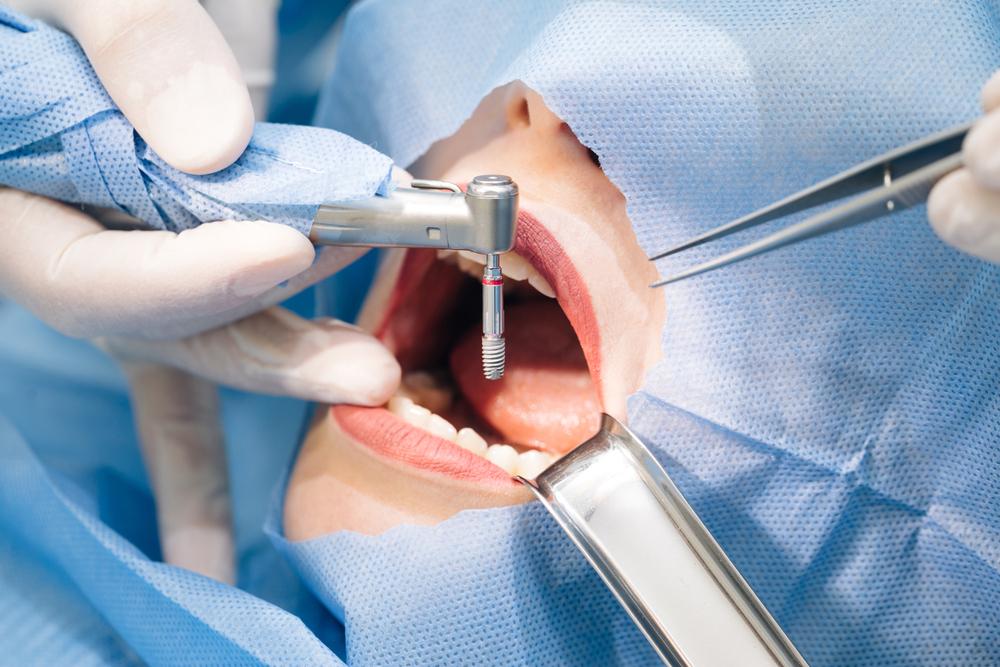Root Canals Simplified
Your Guide to a Fear-Free Dental Experience

Root canals are an essential dental procedure that helps to treat and preserve teeth that have been severely damaged or infected. They play a crucial role in dental health by eliminating the need for tooth extraction, thus helping maintain the natural structure of the mouth and jaw.
Despite their importance, root canals often come with a reputation of being painful and scary. This is largely due to misconceptions and outdated information. With advancements in modern dentistry, root canal procedures are now as comfortable as getting a regular filling. In this guide, we aim to dispel these fears and provide a clearer understanding of what a root canal entails.
FAQ’S
What is a Root Canal?
The term 'root canal' may send shivers down your spine, but this often-feared dental procedure plays a vital role in saving teeth and relieving discomfort. In this section, we'll demystify the root canal, explaining what it entails and shedding light on when and why it becomes a necessity.
Why and When a Root Canal is Necessary
The necessity of a root canal arises when the inner pulp of a tooth becomes infected or inflamed, a condition known as pulpitis. Several factors can lead to this issue, including untreated cavities, cracks in the tooth, or dental trauma. The symptoms often include severe toothache, heightened sensitivity, and swelling around the affected tooth. It's crucial to seek prompt treatment when these signs manifest, as an untreated infected tooth can lead to more severe oral and overall health complications.
Root canals are vital for preserving teeth that might otherwise be lost. They're a solution to both alleviate pain and retain a functional tooth in your smile. Modern techniques and anesthesia have made root canals far more comfortable than their reputation suggests, ensuring patients can look forward to a pain-free future with their treated tooth. Understanding when and why a root canal is necessary is the first step in appreciating this essential dental procedure.
Debunking Root Canal Myths
Root canals often carry a reputation that doesn't quite align with reality. In this section, we'll tackle some of the most common myths and misconceptions about root canals, shedding light on the facts that counter these often-unfounded beliefs.
Common Myths and Misconceptions About Root Canals
Root canal myths persist, leading to anxiety and fear about this valuable dental procedure. Let's address some of these misconceptions:
Myth 1: Root Canals Are Excruciatingly Painful
One of the most widespread myths is that root canals are extremely painful. In truth, the goal of a root canal is to relieve the pain caused by an infected or inflamed tooth. With modern anesthesia and techniques, the procedure is typically no more uncomfortable than a standard dental filling.
Myth 2: Root Canals Cause Illness
This myth suggests that undergoing a root canal can lead to illness or systemic health problems. There is no scientific evidence to support this claim. Root canals are a safe and effective way to treat dental infections while preserving the tooth.
Myth 3: Tooth Extraction Is a Better Option
Some believe that extracting a damaged tooth is a better solution than a root canal. However, tooth extraction should be considered a last resort, as it can lead to additional dental and health complications. Keeping your natural tooth through a root canal is often the most advisable choice.
Factual Information to Counter These Myths
Let's counter these myths with factual information:
Fact 1: Root Canals Relieve Pain
Root canals are performed to alleviate the excruciating pain caused by an infected or inflamed tooth. They don't cause pain; they are the solution to it. With modern anesthesia and dental techniques, patients can experience the procedure with minimal discomfort.
Fact 2: No Link to Systemic Illness
Extensive research has debunked the myth that root canals cause illness. The procedure is designed to treat a localized dental infection, and when performed by a skilled dentist, it's safe and effective. There's no scientific basis for claims linking root canals to systemic health issues.
Fact 3: Tooth Preservation is Preferable
Preserving your natural tooth is often the best option. Tooth extraction can lead to difficulties in chewing, shifting of neighboring teeth, and the need for more extensive dental work. A root canal allows you to maintain your natural smile and continue using your tooth for biting and chewing.
Understanding the realities of root canals and dispelling the myths allows patients to approach the procedure with greater confidence. It's a vital dental treatment that not only alleviates pain but also saves teeth and preserves smiles.
The Root Canal Procedure: Step-by-step
Understanding the root canal procedure can ease anxiety and misconceptions about this valuable dental treatment. In this section, we'll provide a detailed step-by-step explanation of the root canal process, from diagnosis to after-care, while highlighting the virtually painless nature of the procedure with modern techniques.
Detailed Explanation of the Root Canal Process
The root canal procedure involves several steps, each contributing to the restoration of a tooth's health and functionality:
1. Diagnosis: The process begins with a thorough examination and X-rays to determine the extent of infection. This step ensures that a root canal is the appropriate course of action.
2. Anesthesia: Local anesthesia is administered to numb the area, ensuring a painless experience for the patient.
3. Access Opening: A small access opening is created in the tooth's crown to reach the pulp chamber.
4. Cleaning and Shaping: The infected or inflamed pulp is removed, and the inner chamber is meticulously cleaned and shaped to prepare for filling.
5. Filling: The cleaned chamber is filled with a biocompatible material to seal the tooth's interior.
6. Sealing: The access opening in the crown is sealed with a temporary or permanent filling, ensuring the tooth's protection.
7. Restoration: In most cases, a tooth that undergoes a root canal will need a protective crown to strengthen and restore its appearance and functionality. The crown is customized to fit the patient's bite and align seamlessly with their smile.
Painless Nature of the Procedure with Modern Techniques
Contrary to common myths, root canals are virtually painless procedures with the application of modern dental techniques. Patients are comfortably numbed using local anesthesia, which ensures a pain-free experience during the root canal. Advanced technology and anesthesia have revolutionized the process, making it as comfortable as any standard dental treatment.
Root canals are no longer a source of fear but rather a solution to relieve pain and save teeth. Patients can look forward to a pain-free and efficient procedure that preserves their natural smile and enhances their oral health. The success of a root canal lies in its ability to eliminate pain and bring comfort back to your life.
Root canal therapy is often misunderstood and feared, but its benefits are significant. In this section, we'll delve into the advantages of getting a root canal, such as pain relief, tooth preservation, and the positive impact on overall dental health.
Benefits of Getting a Root Canal
Root canal therapy offers a range of invaluable benefits:
1. Pain Relief: The primary and immediate benefit of a root canal is pain relief. An infected or inflamed tooth can cause excruciating pain. The procedure removes the infected pulp and eliminates the source of pain, offering almost immediate relief. Patients who undergo a root canal typically report feeling much better following the procedure.
2. Tooth Preservation: Root canals are a method of preserving a tooth that might otherwise require extraction. Retaining your natural tooth is crucial for maintaining proper chewing function and preventing neighboring teeth from shifting, which can lead to other dental problems.
3. Aesthetic Restoration: After a root canal, the tooth is often restored with a custom-designed crown. This crown not only strengthens the tooth but also restores its appearance, ensuring it blends seamlessly with your smile.
4. Efficient and Time-saving: Modern dental techniques and same-day crowns have made root canal therapy more efficient and less time-consuming. It's possible to have the entire procedure, including the placement of the crown, completed in a single visit to the dentist's office.
How a Root Canal Can Improve Overall Dental Health
A root canal is more than just pain relief; it contributes significantly to overall dental health:
1. Prevents Spread of Infection: An infected tooth can harbor harmful bacteria. By removing the infected pulp and sealing the tooth, a root canal prevents the spread of infection to other teeth or even throughout the body, protecting your overall health.
2. Preserves Tooth Alignment: A missing tooth, due to extraction, can cause neighboring teeth to shift, leading to misalignment and potential bite issues. A root canal preserves your natural tooth, helping maintain proper tooth alignment.
3. Restores Chewing Function: A tooth that was painful or compromised before a root canal may have limited your ability to chew and enjoy your favorite foods. After a root canal, you can confidently use your treated tooth to chew and enjoy a wide range of foods, contributing to better nutrition and overall well-being.
Therefore, root canal is not a source of fear, but a dental procedure with numerous benefits. It provides pain relief, preserves your natural tooth, and contributes to improved overall dental health. It's a valuable treatment for restoring your smile's comfort and functionality while safeguarding your well-being.
How to Prepare for a Root Canal Procedure?
Preparing for a root canal procedure can help minimize anxiety and ensure the process goes smoothly. Here are some tips:
1. Consultation and Questions: Before the root canal, schedule a consultation with your dentist. This is an excellent opportunity to ask any questions or express concerns you may have about the procedure.
2. Review Your Medical History: Be ready to provide your dentist with a comprehensive medical history, including any medications you're taking or underlying health conditions. This information will help the dental team ensure your safety and comfort during the procedure.
3. Discuss Anesthesia: During the consultation, discuss the type of anesthesia to be used. Your dentist will typically administer local anesthesia to numb the area, ensuring you won't feel pain during the procedure. If you have any concerns about anesthesia, this is the time to address them.
4. Plan for Transportation: You may feel a bit groggy or numb after the procedure due to the anesthesia. It's a good idea to arrange for someone to drive you to and from the dentist's office to ensure your safety.
5. Eat Before Your Appointment: Have a light meal before your appointment. This ensures you won't be overly hungry afterward, as you may want to avoid eating immediately after the procedure.
What to Expect During and After the Procedure?
During the procedure, you can expect the following:
1. During the Procedure: The root canal itself is generally painless due to the anesthesia. You might feel some pressure or hear slight noises, but there should be no pain. Your dentist will remove the infected pulp, clean and shape the tooth, fill it, and may place a temporary filling or crown.
2. After the Procedure: You may experience some numbness, which can last for a few hours. It's common to feel a little soreness in the area for a few days, but this can typically be managed with over-the-counter pain medications. You can resume your regular activities after the procedure, but it's advised to avoid hard or crunchy foods for a few days while the tooth heals. Follow your dentist's post-treatment instructions carefully.
3. Follow-up Appointments: In most cases, you'll need a follow-up appointment to have a permanent crown placed on the treated tooth. This crown restores the tooth's strength and aesthetics. Be sure to attend this appointment as scheduled.
4. Oral Hygiene: Maintain good oral hygiene after the root canal. Regular brushing, flossing, and dental check-ups are crucial for the long-term success of the treated tooth and your overall dental health.
Preparation and understanding of the root canal process can help alleviate anxiety and ensure a smooth experience. By following these tips and knowing what to expect, you'll be well-prepared for your root canal procedure.
Conclusion:
In conclusion, root canals are an essential dental procedure designed to alleviate pain, preserve your natural teeth, and enhance overall dental health. It's crucial to dispel the associated fears and misunderstandings that often surround this treatment.
Root canals are not to be feared; they are to be appreciated for the relief and restoration they offer. They bring significant benefits such as pain relief, tooth preservation, and improved oral health. Understanding the painless nature of modern root canals and the positive outcomes they bring can help dispel any apprehensions.
If you're experiencing persistent tooth pain, it's a clear sign that something is amiss. Ignoring the pain can lead to worsening oral health and further complications. The best course of action is to consult with your dentist promptly. Your oral health is crucial, and your dentist is your partner in maintaining a pain-free and radiant smile. Don't hesitate to schedule an appointment if you're in discomfort; it's the first step towards a healthier, happier smile.
In the world of dentistry, root canals are a testament to modern advancements and the dedication of dental professionals to your comfort and well-being. They are not to be feared, but rather embraced as a solution that alleviates pain, preserves your natural teeth, and supports your overall dental health.





Let’s Get Started
Call Us:
Office Hours :
Mon-Fri: 8:00am-5:00pm
Email Us :
appointments@kokomodentistry.com
Address :
604 East Boulevard, Suite A, Kokomo, IN 46902








